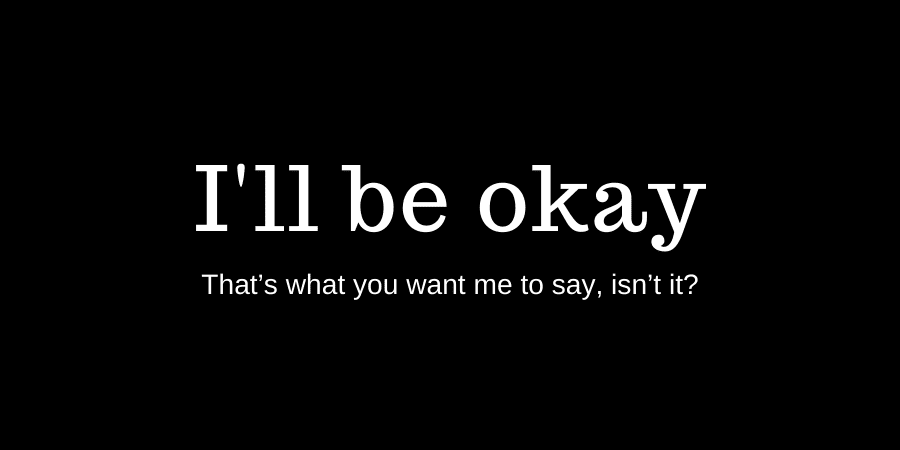
What is tense control in writing?
It is staying in your selected primary tense and time and then using other tenses to highlight changes in the time frame.
Can you switch tenses in writing?
Yes, of course, you can change tenses and time. But only when you need to indicate a distinct change.
Time and tenses in writing
You can write in past, present, or future time in any form of writing.
In each time setting, you have a choice of verb tenses you can use.
For example, if you write in the present, you will mostly use the present simple, present continuous, and perhaps present perfect tense.
Writing in the past uses past simple, past continuous, and the past perfect form.
When writing in the future, you use will, going to, or any other future form.
Switching between past and present tense in writing is always necessary for variety.
But you need to be careful with changes in time to maintain tense control in writing.
Your choice of time and tense depends on what you intend to write.
It will be different for an essay, an article, a story, a research paper, a literary work, or a business proposal.
But you need to keep your tenses consistent.
Tenses for writing projects

Story writing tenses
For short stories and novels, the past is the most common choice.
In fact, the simple past tense is often called the storytelling tense.
You are recounting a series of events in the past through your narration and dialogue.
You indicate changes or switches in the time order of events by using good tense control and selection.
For example, the past perfect says that it is an event older than an event in the past simple.
You can use it for flashbacks to what your characters might have gone through and how they felt at an earlier time.
The past continuous is another option to indicate an action that happened at the time of a past event.
Story writing is usually written in these forms of past tense.
Switching from past to present tense in a story is possible, however.
But it is not an easy feat.
There are possibilities when the narrator moves into the present to talk about facts or generalities.
But generally, you would write most stories in the past in narrative tenses.
One other choice you need to make is your point of view when you write any story.
Essay writing tense
The general rule is to use the present simple tense when writing an essay.
You would only use past tenses if you needed to write a narrative essay, which is quite rare.
In an essay, you are usually expressing facts, your understanding or beliefs, or your opinions.
You can only express these aspects by using present tenses.
The one possibility to change tense in essay writing is when you express a possible future outcome related to your facts or opinions.
Here is a quick example.
In the book, the author says that our waterways are highly polluted and that it now affects our domestic water supply.
I believe this will become a significant problem for our children in the future.
Blog and article writing
When you write an online article or blog post, you are often talking about something that has happened. Blog writing is frequently like news reporting.
You are telling the reader about events that occurred before you sat down to write.
In this case, you would always use past tenses.
However, if you are writing evergreen content like how-to articles or advice posts, you will probably choose to use the present tense.
Anytime that you are giving advice or instructions, you use the present simple or even the imperative.
Think here about a recipe article. You would always write it in the present.
You should always be clear about your tense control in writing before you start and avoid changing tenses unnecessarily in your writing.
One last factor to consider is your choice of point of view when writing blog posts and articles.
Professional and academic writing
You can usually classify this type of writing into three main categories. You are going to write either a plan, a report, or a statement.
For a plan, such as a business plan or a proposal for a new curriculum, you will use future tenses and forms.
If you need to write a sales report or the results of a survey, you should only use the past tense forms.
A statement like a code of ethics, a statement of purpose, or a press release are most often in the present.
For these three writing tasks, when you start writing in a particular tense, you should be consistent unless there is a compelling reason to switch between tenses.
Common mistakes in changing tenses in writing
The most common error in tense control in writing is switching from past to present tense at a sentence level.
One of my favorite examples of mixing tenses in a sentence is this one.
It is incorrect because the first verb is past, and the second is present.
There are two ways to correct this sentence with the right tense agreement.
Who says writing is easy?
Who said writing was easy?
Both sentences now agree.
Here are a few more examples of incorrect tense agreements and how to keep tenses located in the same time.
I was walking down the stairs, and there he stands, staring at me. Incorrect
I was walking down the stairs, and there he stood, staring at me. Correct
I saw Mary this morning, and she says that she is moving to Canada. Incorrect
I saw Mary this morning, and she said that she was moving to Canada. Correct
After I booked my flight to London, I am finding that all the prices for tickets were falling. Incorrect
After I booked my flight to London, I found that all the prices for tickets were falling. Correct
Tense change in a paragraph
Changing the tense in a paragraph is also an area that can cause problems.
It often happens when you use a pronoun linking back to the previous sentence.
You need to be careful with this and that. This is for present and future references. That is for a past reference.
The police believe the suspect is armed and is suffering from a severe mental disorder. That was why everyone in the district should be on alert. The detective in charge said all precautions were being taken. Incorrect
The police believe the suspect is armed and is suffering from a severe mental disorder. This is why everyone in the district should be on alert. The detective in charge says all precautions are being taken. Correct
With future tenses, mistakes often occur in first and second conditional sentences.
You can only use the future with the present and not with the past.
If I win the lottery, I’d buy a Ferrara. Incorrect
If I win the lottery, I’ll buy a Ferrara. Correct
If I won the lottery, I’ll buy a Ferrari. Incorrect
If I won the lottery, I’d buy a Ferrari. Correct
Use natural tenses
You can write more naturally if you first work out what tenses you would generally use when you speak.
You’ll save a lot of time and spend less time editing and revising.
If you write in perfect tenses that you’re not familiar with, such as present perfect or future perfect, you might find yourself shifting back to a more natural tense.
You need to stay in your comfort zone and your natural variety of English with tenses.
For US writers, past simple is much more common than present perfect. However, for UK writers, the opposite is true.
You should stay within your local voice but still pay attention to any mixed tense mistakes.
Get some help
It’s so easy to mix your tenses. Every writer is guilty of it occasionally.
If you’re not sure, get some help. Find a friend or family member who can read your text and check.
You don’t need to hire an editor, but a fresh pair of eyes always helps.
But don’t rely too much on online grammar checkers.
They are great for finding basic grammar errors, but for tense shifts, they are not as reliable.
Conclusion
You can write in three different times, present, past, and future.
The English tense system has four tenses, or verb forms, for each time.
They are simple, continuous, perfect simple, or perfect continuous.
As long as you use the correct tenses for your time setting, you won’t make a mistake.
When you are writing a story, stick with the past tenses.
For an essay or advice article, stay with present tenses.
If you want to write about a plan, use the future.
It’s that easy to maintain tense control in writing.
Related reading: What Is The Subjunctive Mood And How To Use It?




Great article! I did notice one potential error in your favourite sentence though… maybe you’ll like it even better with this alternative interpretation ;)
Who said writing is easy?
I would argue the primary issue with this sentence is not that it’s changing tense in the middle, but that it’s lost its quotation marks.
I’ve noticed this sometimes happens with well-known rhetorical questions.
Put them back, and there’s no problem:
Who said “writing is easy”?
Now the sentence is no more incorrect than any other dialogue. The narration is in the past, but the speaker is using the present tense. As you pointed out, you can always have narration and dialogue differ.
Laura said “writing is easy.”
Laura said “I like peas”.
Jill will respond, as she always does “But you used to hate peas, and writing has not always come naturally”.
It’s an example phrase, so I didn’t think it needed to be written in strict dialogue.
But yes, it could also be written in different ways.
“Who said writing is easy?”, I asked.
“Who said writing is easy?”, I wondered.
But thanks for your interest and interaction.
Hi Lisa,
I have been reading (and rereading) your articles on writing. I have found them to be very interesting and very inspiring.
I am enquiring if I can download all your articles into a Word document, so I can read the offline.
I know I could this without your knowledge but I find it polite to ask permission to do so.
That’s fine with us, Paul. Glad to hear that our writing articles are useful for you.
Hi Lisa,
I’m from Philippines, greetings from filipinos! Such a good starter pack about writing. It’s very useful, keep it up! :)
Hi Lisa,
great article, as all that you write. Keep on doing the good work.
And keep on smiling, too.
Hi Lisa-
Thanks for the heads-up to writers about the need that “other set of eyes”, professional eyes of an editor. It seems we have a bad rep from some writers, but all we really want to do is help; help the writer with clarity and simple corrections. All this so that the reader is not confused or distracted.